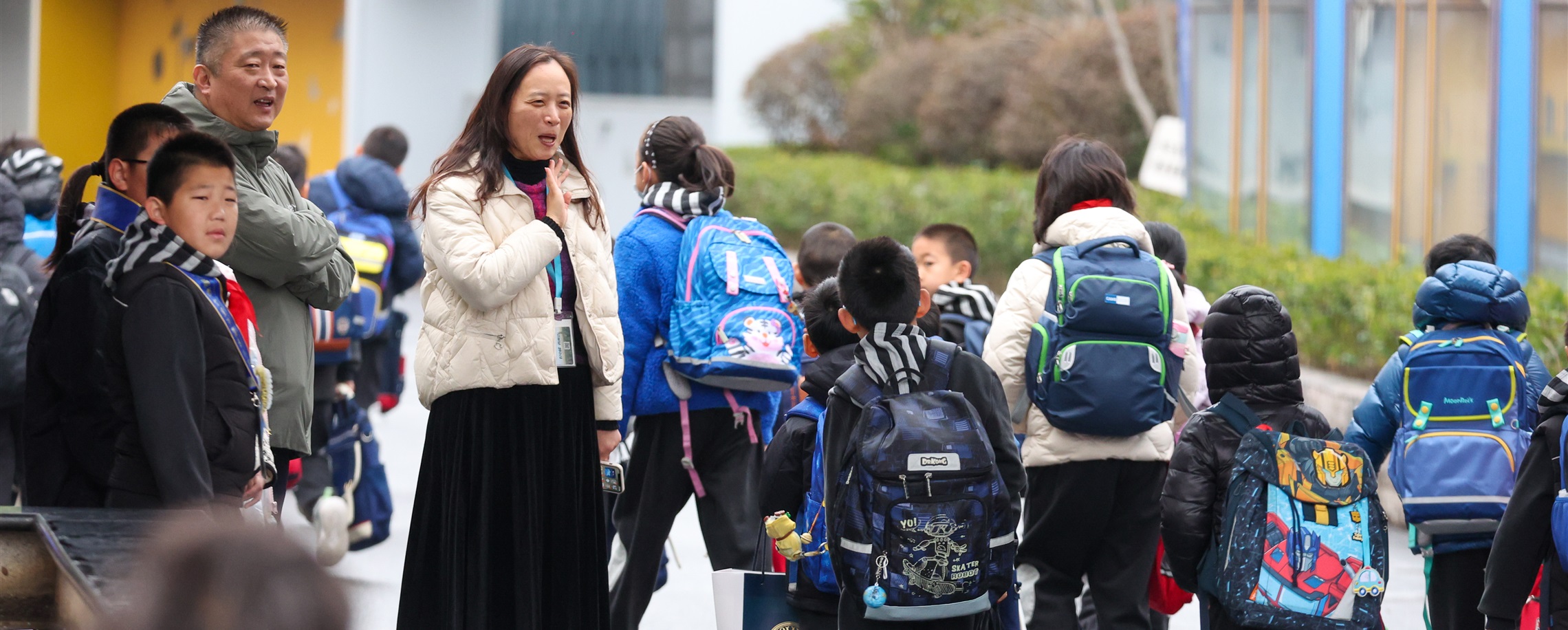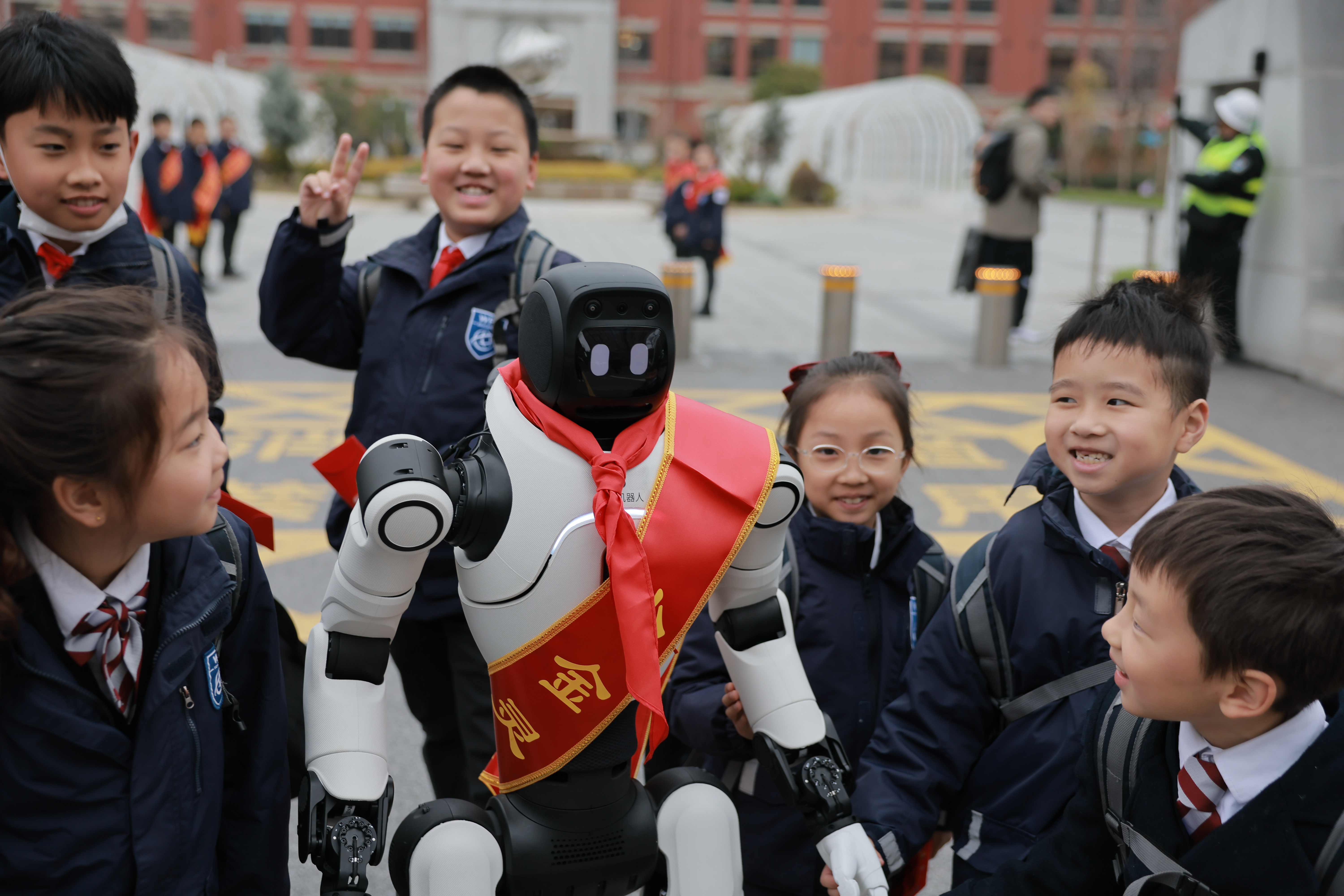Universities call for global cooperation on AI research
Shanghai's universities showcased cutting-edge artificial intelligence innovations at the 2025 World Artificial Intelligence Conference, while advocating for a globally open scientific research ecosystem – with Fudan University taking a leading role by putting forward the Global Initiative for Open Science Cooperation.
Fudan University President Jin Li emphasized that open collaboration remains the cornerstone of scientific progress.
"Artificial intelligence is reshaping the landscape of scientific research, yet the growing technological divide is deeping the fragmentation of global research resources," he said during his address.
"In the age of scientific intelligence, we must promote open cooperation in infrastructure, data, talent, and governance. A scientific cooperation system that benefits all humankind is the goal so that open research may benefit an open world and collaboration can create a collaborative future."
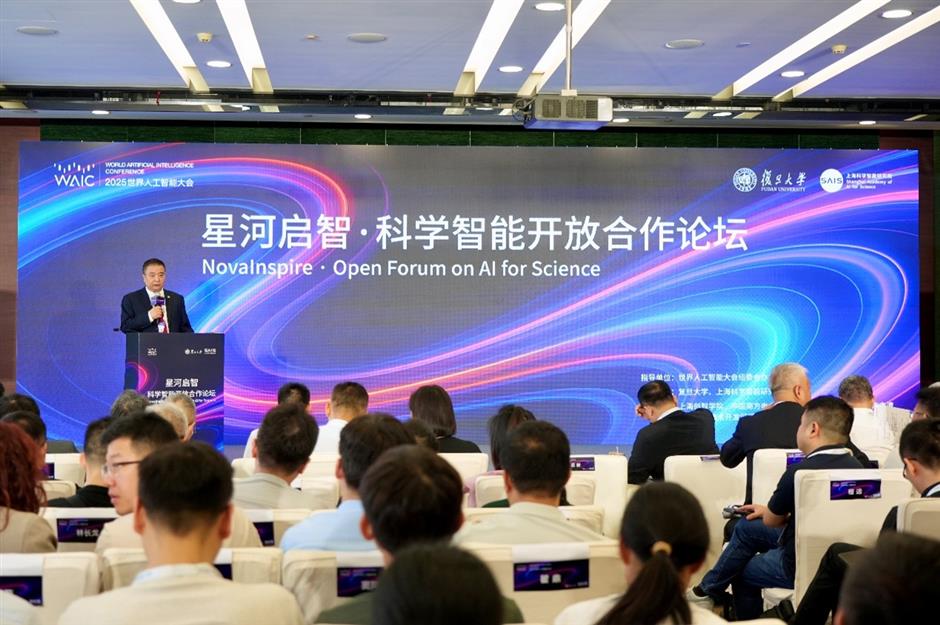
The university established NovaInspire, a scientist-centered artificial intelligence open platform with high interdisciplinary application, with the Shanghai Academy of AI for Science, to accelerate scientific breakthroughs. The platform made its official debut during the WAIC 2025, which concluded on Monday.
Qi Yuan, a professor at Fudan University and dean of the Shanghai Academy of AI for Science, said the platform offers over 200 ready-to-use cutting-edge models, data, and tools across multiple disciplines to shorten research cycles for scientists worldwide.
"This platform makes it much easier for scientists to use AI tools. You do not need to be an AI expert to make it work. The platform allows researchers to find the data and models they need at a reasonable cost and with few barriers," he said.
They also released the first multi-modal big model on early Chinese culture. Its goal is to advance the Chinese cultural context through creative transformation and inventive development, as well as to establish a credible intellectual foundation for humanities and social sciences research.
This concept is projected to transcend academic boundaries, benefiting education, research and the larger cultural industry. In the future, it will be capable of doing speedy searches, precise translations, intelligent interpretation, fact presentation, feature description, historical data credibility testing, and in-depth analysis and reasoning.
Once it's up and running on the NovaInspire platform, it will be able to assist scholars with their research as well as public cultural education.
Shanghai Jiao Tong University also announced a number of AI research accomplishments, such as the scientific research base large model "Innovator," the research agent "SciMaster," the rare disease detection agent DeepRare, and MemOS, the world's first memory operating system designed for large models.
These results show the university's AI technology advancements and AI's potential in large-scale applications and enabling industries like terminals and healthcare.
The open-source large model Innovator facilitates the deployment and construction of exclusive research tools and agents. It has world-leading scientific multimodal comprehension and scientific reasoning, and will serve millions of users.
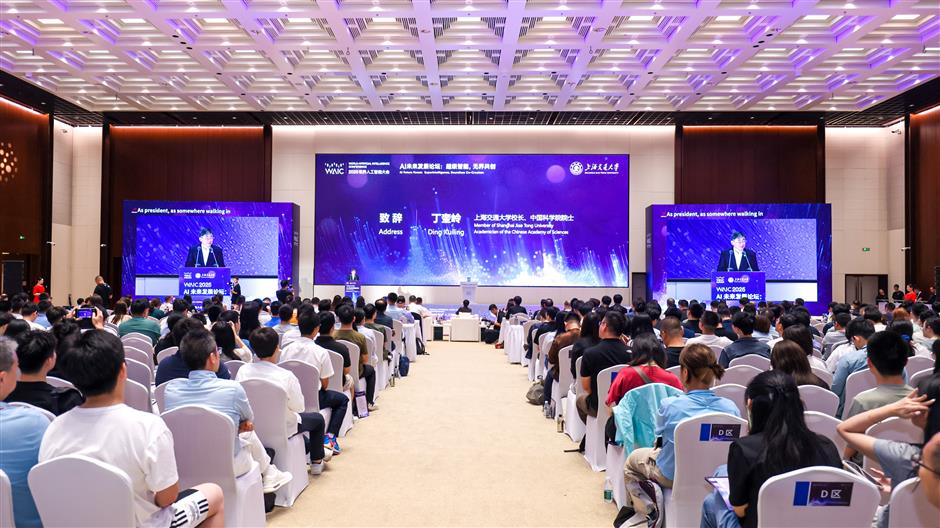
The university's School of Artificial Intelligence established the AI Future Fund to develop AI talent. The fund covers Research and Tech Innovation seed programs. To promote a long-term, stable, and sustainable research innovation environment, the research program targets young scientists in school and funds research teams. The tech program supports university lecturers and students in entrepreneurship, innovation and research translation through angel investments.
Shanghai Jiao Tong University is partnering with Nature to examine the top 10 AI issues after launching its AI Future Fund. The university's 130th anniversary festivities in 2026 will reveal the project's findings on cutting-edge, cross-disciplinary AI themes.
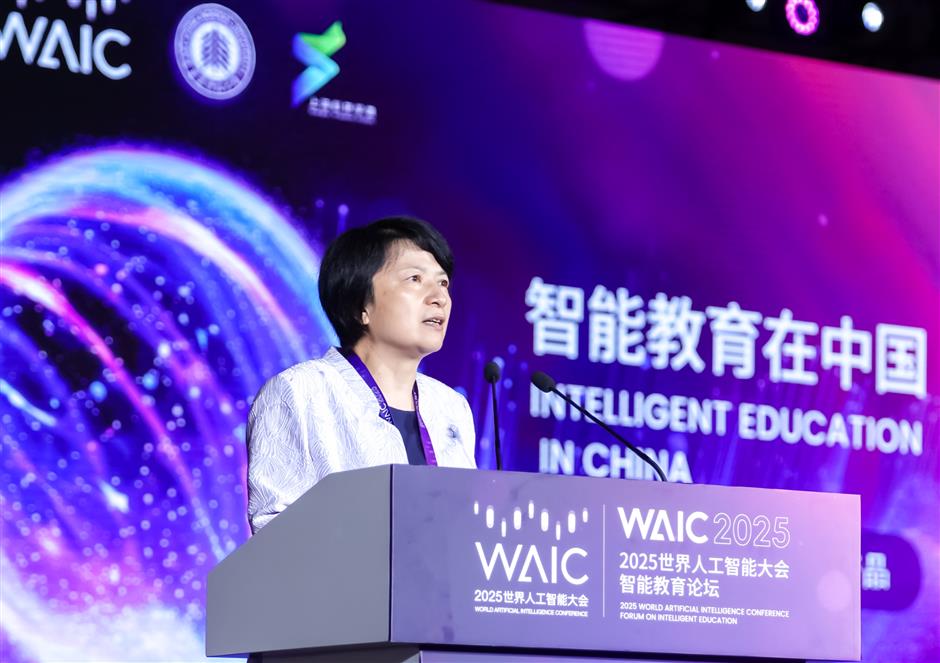
East China Normal University released InnoSpark, a large language model it has developed in cooperation with the Shanghai Institute of AI for Education.
Built on China's independently developed Qwen model, this education-specific AI model is tailored to address the unique demands of educational scenarios. Its core focus lies in delivering precise responses to educational queries while enhancing both subject teaching and academic research.
Yuan Zhenguo, director of the National Institute of Education Sciences, said the model helps to generate cross-disciplinary teaching plans, diagnose students' learning conditions, and interact emotionally.
Zhou Aimin, head of the R&D team, said that the model will be made available to millions of teachers in September and will serve as their "intelligent partner."
In Case You Missed It...


